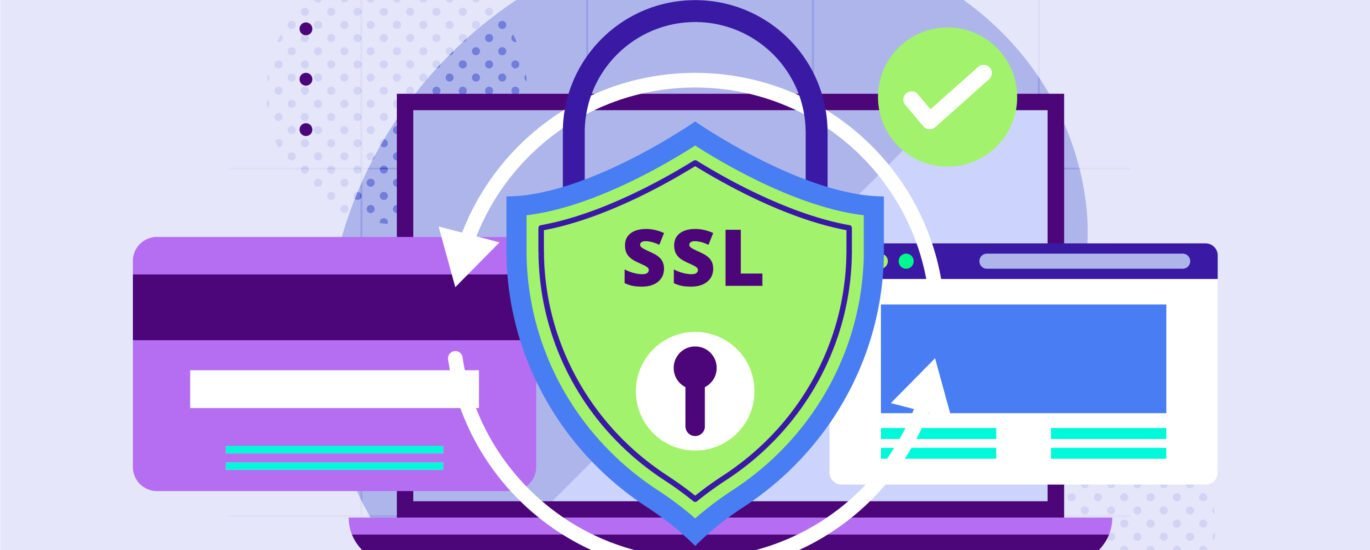In the vast digital landscape, where countless websites are competing for users’ attention, trust and security have become paramount. This is where SSL certificates come into play.
In this comprehensive guide, we will explore what SSL certificates are, why they are essential for websites, and how they can impact your online presence.
What is an SSL Certificate?
SSL, which stands for Secure Sockets Layer, is a cryptographic protocol designed to secure data transmission over computer networks. In simpler terms, an SSL certificate is a digital certificate that authenticates the identity of a website and encrypts the data transmitted between the user’s web browser and the web server.
This encryption ensures that sensitive information such as login credentials, payment details, and personal data remains private and protected from potential cyber threats.
How SSL Works:
- Authentication: When a user visits a website, their browser requests a secure connection.
- Encryption: Once the connection is established, SSL encrypts the data being transmitted.
- Data Integrity: SSL also ensures that the data sent or received has not been tampered with during transit.
- Trust: The SSL certificate validates the website’s identity, assuring users that they are connecting to a legitimate site, not a malicious impostor.
Why SSL Certificates are Essential for Websites
1. Security and Data Protection
The primary and most crucial benefit of an SSL certificate is security. It protects both your website and your users from various online threats, including data breaches, identity theft, and cyberattacks. Without SSL, any data transmitted between the user’s browser and your web server is vulnerable to interception, potentially leading to severe consequences.
By encrypting this data, SSL certificates safeguard sensitive information and ensure its confidentiality.
2. Improved SEO Rankings
In 2014, Google announced that it would consider SSL as a ranking signal in its search algorithm. Websites with SSL certificates are now more likely to appear higher in search engine results. This means that SSL isn’t just about security; it’s also crucial for your website’s visibility and SEO.
Google aims to provide a safer browsing experience, and using SSL is a clear way to show your commitment to user safety.
3. User Trust and Credibility
Would you trust a website that your browser marks as “Not Secure”? Most users won’t and for a good reason. When your website lacks an SSL certificate, modern web browsers, like Google Chrome, display a warning to users, which can quickly deter them from entering your site.
On the other hand, when users see the padlock icon or “Secure” label in their browser’s address bar, it instills confidence and trust in your website. SSL certificates are a symbol of your commitment to user safety and data protection.
4. E-commerce and Online Transactions
If your website involves e-commerce or any form of online transaction, an SSL certificate is non-negotiable. Customers need to trust that their payment information is secure when making purchases. SSL encryption ensures that their credit card details and personal information are kept safe, which, in turn, encourages more transactions and builds customer loyalty.
5. Legal and Compliance Requirements
Various laws and regulations require websites to protect user data. The General Data Protection Regulation (GDPR) in Europe and the Health Insurance Portability and Accountability Act (HIPAA) in the United States have stringent data protection requirements.
Failure to comply with these regulations can result in legal consequences and hefty fines. Using SSL certificates is a fundamental step toward compliance with these laws.
6. Protection against Phishing Attacks
Phishing attacks involve tricking users into divulging sensitive information to malicious websites that mimic legitimate ones. SSL certificates help prevent such attacks by verifying the authenticity of your website. Users are more likely to trust and enter their information on a site with a valid SSL certificate.
7. Browser Compatibility
Modern web browsers are designed to work seamlessly with SSL-encrypted websites. Without SSL, your website might not function correctly in some browsers, leading to a poor user experience and potentially driving visitors away.
8. Mobile Compatibility
With the proliferation of mobile devices, ensuring your website is mobile-friendly is crucial. SSL certificates play a role in this, as Google, in particular, encourages mobile compatibility and considers it in its ranking algorithm.
Types of SSL Certificates
SSL certificates come in various types, offering different levels of security and validation. Understanding these types can help you choose the one that best suits your website’s needs:
1. Domain Validated (DV) SSL Certificates
These certificates are the most basic and easiest to obtain. They verify that the applicant has control over the domain but do not validate the organization’s identity. DV SSL certificates are suitable for blogs and personal websites.
2. Organization Validated (OV) SSL Certificates
OV certificates provide a higher level of validation by verifying the organization’s details, including its name and address. These certificates are ideal for small businesses and e-commerce sites.
3. Extended Validation (EV) SSL Certificates
EV certificates offer the highest level of validation. They require a thorough verification process, confirming the organization’s legal and physical existence. Websites with EV certificates display a green address bar, providing the highest level of trust to users. This type is commonly used by financial institutions and large e-commerce platforms.
4. Wildcard SSL Certificates
A wildcard SSL certificate covers a domain and all its subdomains. This can be beneficial for websites with multiple subdomains, saving both time and money on certificate management.
5. Multi-Domain (SAN) SSL Certificates
Multi-domain certificates secure multiple domains under a single certificate, making them cost-effective for businesses managing several websites.
6. Self-Signed SSL Certificates
While not recommended for production websites, self-signed certificates can be used for internal purposes, such as testing and development. They are not issued by a trusted Certificate Authority (CA) and are often flagged as insecure by web browsers.
How to Obtain an SSL Certificate
Obtaining an SSL certificate is not a complicated process. Here are the general steps to follow:
Choose a Certificate Authority (CA): You can purchase an SSL certificate from a CA, a trusted organization that issues digital certificates. Popular CAs include DigiCert, Comodo, and Let’s Encrypt.
Select the Right Type: Decide which type of SSL certificate suits your website’s needs. The choice depends on factors such as your website’s purpose, size, and the level of trust you want to establish with users.
Generate a Certificate Signing Request (CSR): This is a file containing your website’s information and the public key. You will need this CSR to request the SSL certificate.
Purchase the Certificate: Buy the SSL certificate from your chosen CA. You may need to provide the CSR during this process.
Complete the Validation Process: The CA will validate your domain and, for OV and EV certificates, your organization’s details.
Install the Certificate: After the certificate is issued, you will need to install it on your web server. The CA will provide instructions specific to your server software.
Configure Your Website: Ensure that your website is set to use HTTPS to take advantage of the SSL certificate’s security and SEO benefits.
Conclusion
In the digital age, where trust and security are paramount, SSL certificates have become a necessity for websites of all kinds. They not only protect your users and their data but also improve your website’s search engine rankings, user trust, and overall credibility.
Investing in an SSL certificate is a wise decision, whether you run a personal blog, a small business website, or a large e-commerce platform. The benefits are manifold, from safeguarding sensitive information to complying with legal regulations and gaining an edge in search engine rankings.
So, if your website is not yet secured with an SSL certificate, it’s time to make the change. Secure your digital presence, protect your users, and boost your online credibility with this essential layer of security.
For expert assistance in setting up an SSL certificate for your website or any web development needs, consider reaching out to the professionals at SocialBusk.com. They have a team of experienced developers ready to help you enhance your online presence and ensure your website’s security and SEO compliance. Don’t hesitate to book a call with experts to take the next step in your online journey.
Your website’s success awaits!
Disclaimer: This article is for informational purposes only and does not constitute legal or professional advice. Always consult with a qualified professional for advice on your specific situation.






